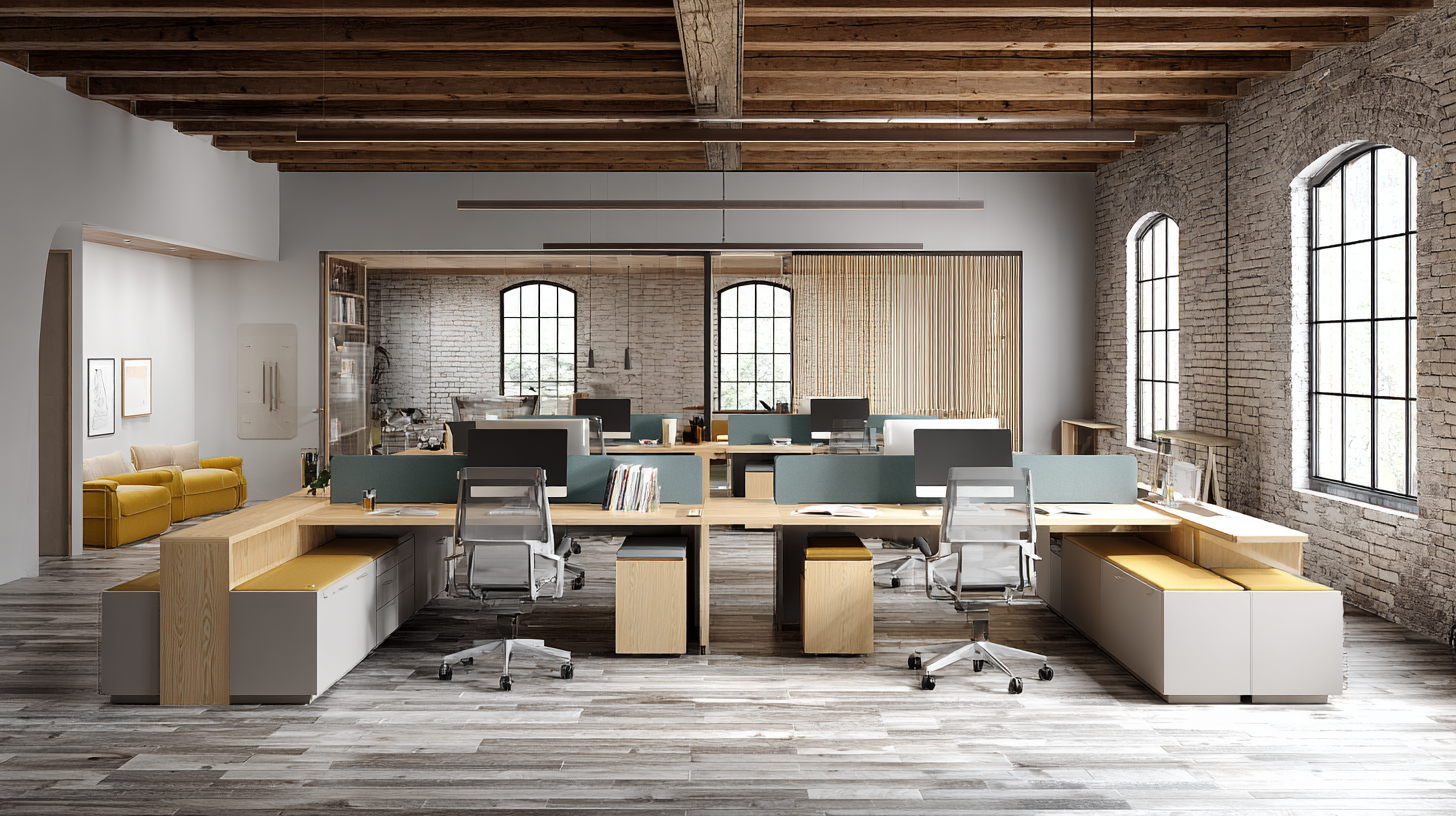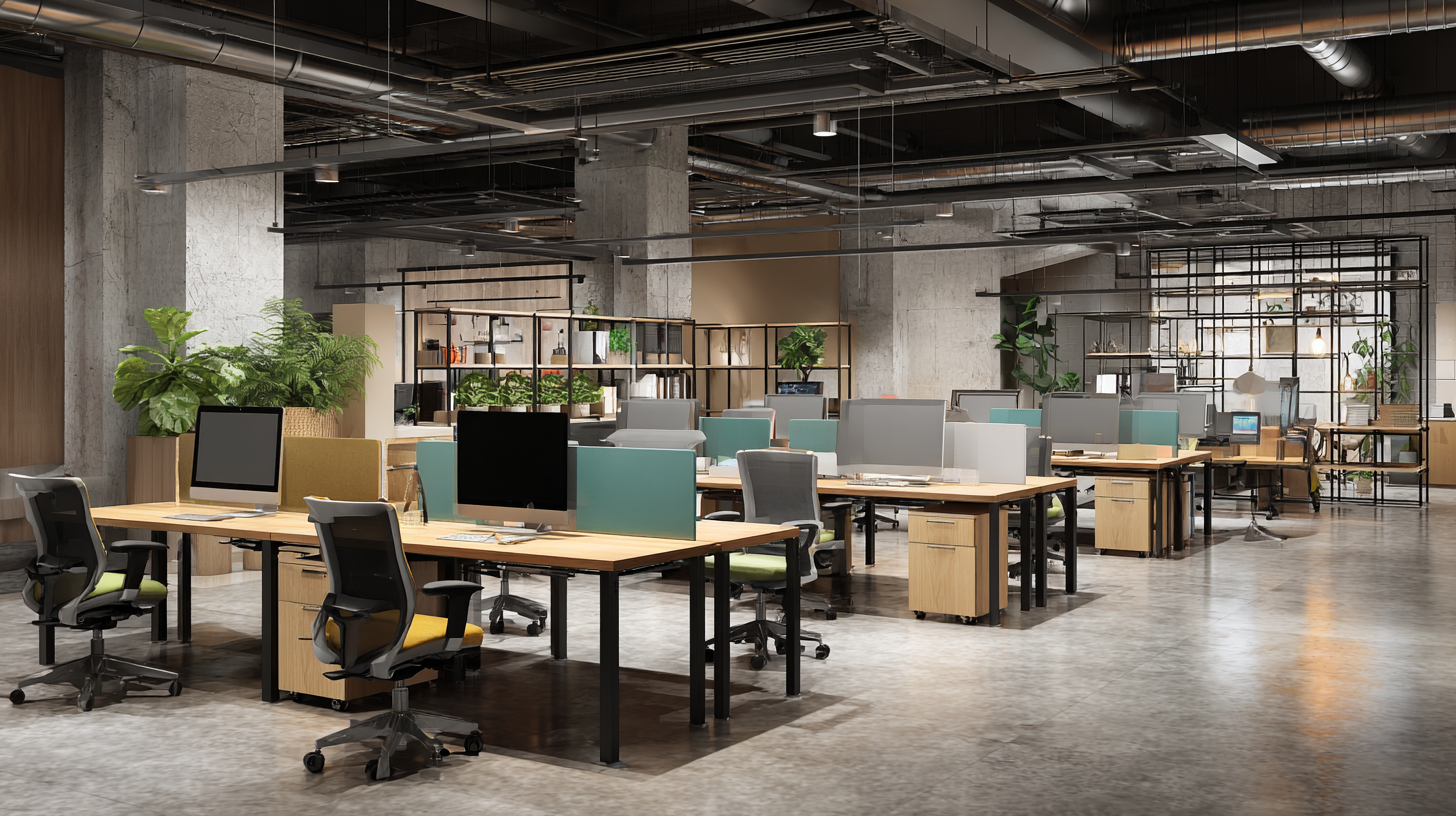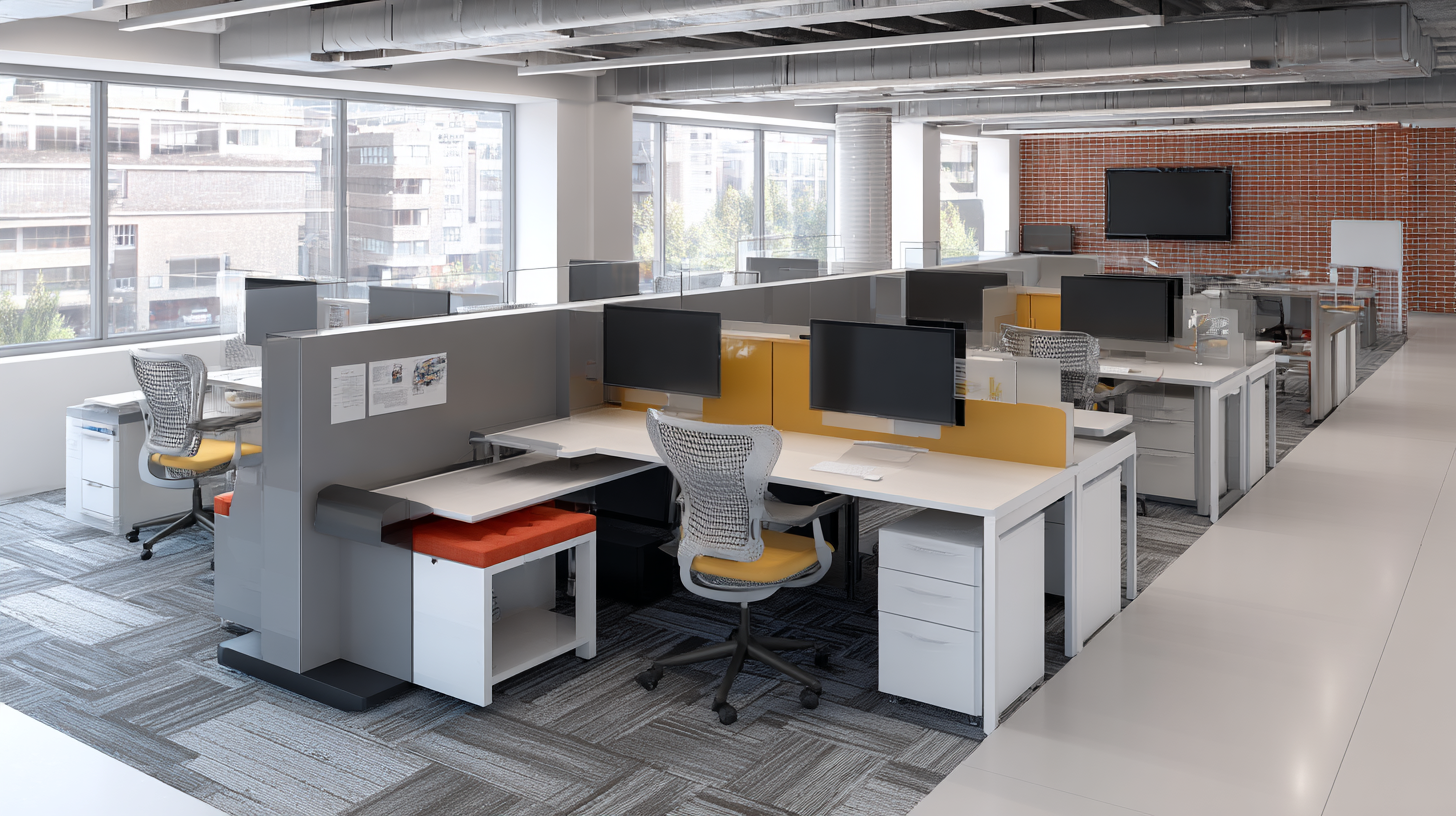Largest Selection of New and Used Office Furniture! Call 1-855-885-3375 or visit a showroom today!
Blog
Transforming Workspaces with Best the Range Desks 5 Key Benefits Backed by Industry Statistics
In today's rapidly evolving work environment, the importance of creating functional and aesthetically pleasing workspaces cannot be overstated. As we look toward the market landscape of 2025, organizations are increasingly recognizing the value of investing in quality furniture that supports employee productivity and well-being. Among the variety of options available, "the range desks" stand out as a pivotal choice for businesses aiming to enhance their workspaces. These desks offer versatile designs that cater to diverse working styles and preferences, contributing to an environment that fosters creativity and collaboration. Supported by industry statistics that highlight the positive impact of ergonomic design on employee performance and satisfaction, we will explore five key benefits of incorporating the range desks into modern offices. From improving posture to boosting focus, understanding these advantages is crucial for organizations seeking to thrive in an ever-competitive market.

Transforming Workspaces: The Correlation Between Desk Quality and Employee Productivity
The modern workplace has experienced dramatic changes in recent years, largely influenced by advancements in technology and shifting employee expectations. A strong focus on desk quality has emerged as a crucial factor in enhancing employee productivity. According to a study by the International Facility Management Association, the design and ergonomics of workspaces, particularly desks, can lead to a productivity increase of up to 10%. This emphasizes the significant correlation between desk quality and the overall work experience.
Moreover, feedback from employees suggests that a thoughtfully designed workspace not only boosts morale but also fosters better collaboration among team members. Research indicates that environments tailored to employee needs can improve engagement levels by as much as 20%. As companies look to embrace innovative technologies, investing in high-quality desks and workspaces emerges as a vital strategy—paving the way for improved productivity and job satisfaction in an ever-evolving work landscape.

The Role of Ergonomic Furniture in Reducing Workplace Injuries and Absenteeism
In today’s fast-paced work environment, the significance of ergonomic furniture cannot be overstated. Ergonomic desks, chairs, and accessories play a pivotal role in enhancing employee comfort and productivity. Studies reveal that companies investing in ergonomic solutions experience a significant reduction in workplace injuries. By providing adjustable desks that cater to varied body types, employers can minimize strain and discomfort associated with prolonged sitting, effectively lowering the risk of musculoskeletal disorders.
Moreover, the link between ergonomic furniture and absenteeism is compelling. Research indicates that employees working in ergonomically designed spaces report fewer health issues, leading to decreased absenteeism rates. When workers feel comfortable and pain-free, they are more likely to show up consistently and maintain high levels of productivity. As industries increasingly recognize the ROI of prioritizing employee wellness, incorporating ergonomic furniture becomes not just a trend but a vital strategy for fostering a healthier, more efficient workplace culture.
Transforming Workspaces with Best the Range Desks: 5 Key Benefits Backed by Industry Statistics
| Benefit | Statistic | Industry Impact |
|---|---|---|
| Reduced Musculoskeletal Disorders | 60% reduction | Lower healthcare costs |
| Increased Productivity | 15% increase | Higher output |
| Decreased Absenteeism | 32% decrease | Improved morale |
| Enhanced Employee Satisfaction | 25% improvement | Reduced turnover |
| Better Posture | 40% improvement | Fewer claims |
Statistics on Employee Engagement Levels Linked to Flexible Workspace Designs
Flexible workspace designs have increasingly become integral to fostering employee engagement and productivity. Statistics indicate that organizations adopting modern, adaptable office layouts report a significant boost in employee morale. According to a recent study, 70% of employees express higher job satisfaction in environments that allow for mobility and choice in their workspaces. This statistic highlights the direct correlation between workspace flexibility and the enhancement of employee engagement levels.
Moreover, companies that implemented adjustable desk systems showed a 30% increase in overall productivity. Employees benefit from the ability to switch between sitting and standing, which not only promotes physical health but also keeps them mentally refreshed and focused. Research suggests that flexible design can lead to lower absenteeism rates, with organizations observing a 25% reduction when employees work in environments tailored to their needs. By investing in versatile furniture such as height-adjustable desks, companies are not just improving physical work conditions, but also nurturing a culture where engagement and efficiency thrive.
How Proper Desk Selection Can Enhance Collaboration and Team Dynamics
Selecting the right desk for your workspace is more than just a matter of aesthetics; it plays a crucial role in enhancing collaboration and team dynamics. Open office layouts paired with versatile desks create an environment that fosters communication and the exchange of ideas. Research indicates that when employees can easily interact with one another, their productivity and creativity increase significantly. By choosing desks that encourage movement—such as standing desks or those with adjustable heights—teams are more likely to engage in spontaneous discussions, leading to innovative solutions and stronger teamwork.
Here are some tips to consider when selecting desks for your team: First, opt for modular desk designs that can be easily rearranged to accommodate different team activities, such as brainstorming sessions or project discussions. Second, ensure that your desks have adequate space for collaborative tools, like whiteboards or shared screens, to facilitate interactive work. Finally, consider acoustic solutions, like partitioned desks, to balance open collaboration with the need for focused work, ultimately enhancing both individual and collective productivity.
The impact of proper desk selection extends beyond functionality. Desks that align with your team’s workflow and culture can significantly boost morale. When employees feel comfortable and supported in their work environment, they are more likely to collaborate effectively, resulting in a more cohesive and motivated team. Cultivating this kind of atmosphere starts with thoughtful desk choices.

Industry Trends: The Impact of Desk Variety on Business Performance Metrics
In the modern workspace, the variety of desk types has shown a significant impact on business performance metrics, as highlighted by recent industry reports. According to a study by Steelcase, companies that invest in ergonomic desk solutions see a 38% increase in employee productivity. This statistic underscores the importance of selecting the right desk design to enhance worker comfort and efficiency. Moreover, a report from the Global Workplace Analytics indicates that organizations utilizing flexible desk arrangements can decrease space-related costs by up to 30%, while also improving overall employee satisfaction.
The trend towards diverse desk options has also been linked to higher retention rates. A survey conducted by the Society for Human Resource Management reveals that 91% of employees value a workspace that meets their functional needs. This preference encourages businesses to adapt and diversify their desk offerings, which ultimately leads to creating dynamic work environments that foster creativity and collaboration. As more organizations recognize the importance of desk variety, it becomes evident that investing in a range of workspaces is essential for both employee well-being and organizational success.
Impact of Desk Variety on Business Performance Metrics
This bar chart illustrates the correlation between the variety of desks in workplaces and key business performance metrics such as employee satisfaction, productivity, creativity, and collaboration. The data reflects the positive effects of integrating a range of desk types in modern workspaces.
